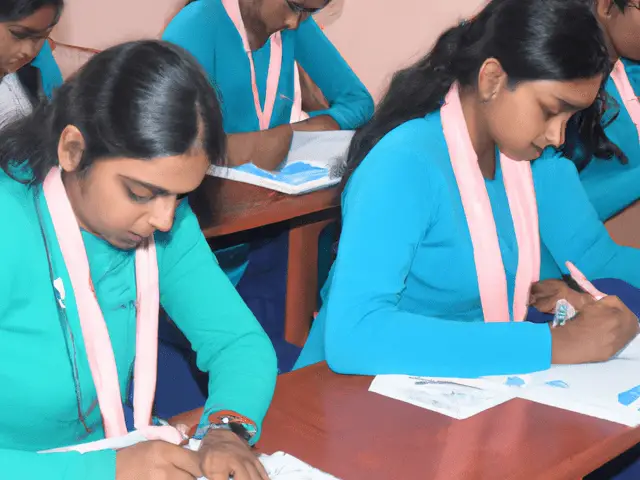
Introduction
In recent years, there has been a growing recognition of the importance of gender diversity in Science, Technology, Engineering, and Mathematics (STEM) fields. Despite progress, women continue to be underrepresented in these areas. To bridge this gap and encourage more women to pursue careers in STEM, various scholarships and initiatives have been introduced. This article delves into the landscape of scholarships for women in STEM in India, exploring their significance, eligibility criteria, and the impact they have on fostering a more inclusive STEM community.
The Need for Women in STEM
STEM fields play a crucial role in shaping the technological landscape and driving innovation. However, women have historically been underrepresented in these areas. The need to rectify this imbalance is not just about achieving gender parity; it’s about tapping into a diverse range of perspectives, ideas, and talents. Women bring unique insights to problem-solving and innovation, enriching the STEM community and contributing to advancements that benefit society as a whole.
Importance of Scholarships for Women in STEM
Scholarships serve as powerful tools to break down barriers and encourage women to pursue education and careers in STEM. Financial constraints often act as significant barriers for many aspiring female scientists, engineers, and technologists. Scholarships alleviate this burden, enabling women to access quality education, participate in research, and contribute meaningfully to their fields.
Notable Scholarships for Women in STEM in India
1. SHE (Scholarship for Higher Education)
- Objective: SHE is an initiative by the Department of Science and Technology (DST), Government of India, to support women pursuing postgraduate education in STEM.
- Eligibility: Women between 30 to 50 years old with a first-class bachelor’s degree in STEM subjects are eligible to apply.
- Benefits: The scholarship provides financial assistance for pursuing master’s and doctoral degrees.
2. Biocon Foundation’s Kiran Women’s Scholarship Program
- Objective: Launched by Biocon Foundation, this program aims to empower women in the field of science.
- Eligibility: Female students from economically weaker sections pursuing B.Sc. and M.Sc. courses in biological sciences are eligible.
- Benefits: The scholarship covers tuition fees and provides a monthly stipend.
3. WOS-C (Women Scientists Scheme-C)
- Objective: WOS-C, under the Department of Science and Technology, supports women scientists who have taken a break in their careers and wish to return to the field.
- Eligibility: Women with postgraduate degrees in basic or applied sciences can apply.
- Benefits: The scheme provides research grants and support for re-entry into the workforce.
4. Pragati Scholarship Scheme for Girls
- Objective: This scholarship, by the All India Council for Technical Education (AICTE), aims to empower women pursuing technical education.
- Eligibility: Girl students pursuing a degree or diploma in engineering are eligible to apply.
- Benefits: The scholarship covers tuition fees and provides additional financial support.
5. Raman Kant Munjal Scholarship
- Objective: The scholarship, offered by Hero MotoCorp, is dedicated to promoting technical education among women.
- Eligibility: Female students pursuing B.Tech or M.Tech degrees in any discipline of engineering can apply.
- Benefits: The scholarship covers tuition fees and provides a monthly stipend.
Challenges and Opportunities
While these scholarships are instrumental in promoting women in STEM, challenges persist. Societal stereotypes, lack of role models, and ingrained biases continue to discourage women from pursuing STEM careers. Moreover, there is a need for more comprehensive initiatives to support women at all stages of their STEM journey, from education to leadership roles.
Opportunities lie in fostering mentorship programs, creating inclusive academic environments, and highlighting the achievements of women in STEM. By addressing these aspects, scholarships can play a more holistic role in empowering women and ensuring their sustained participation and success in STEM fields.
The Impact of Women in STEM Scholarships
The impact of scholarships for women in STEM goes beyond financial assistance. These initiatives contribute to creating a supportive ecosystem that recognizes and values the diverse contributions of women in science and technology. Some key impacts include:
1. Increased Representation:
- Scholarships encourage more women to enter STEM fields, contributing to a more balanced representation in classrooms, laboratories, and workplaces.
2. Breaking Stereotypes:
- By showcasing successful women in STEM, scholarships challenge stereotypes and inspire others to pursue careers that may have seemed unattainable.
3. Community Building:
- Scholarships foster a sense of community among women in STEM, providing a platform for networking, mentorship, and collaboration.
4. Advancement of Research:
- Supporting women in STEM leads to a broader range of perspectives, fostering innovation and advancing research in diverse areas.
5. Long-term Impact on Society:
- Empowering women in STEM has a ripple effect on society, influencing educational norms, workplace dynamics, and societal perceptions of gender roles.
Recommendations for Future Initiatives
To further enhance the impact of scholarships for women in STEM, the following recommendations can be considered:
1. Expanded Outreach Programs:
- Develop outreach programs to reach girls and women at the school level, fostering early interest in STEM subjects.
2. Inclusive Mentorship Programs:
- Establish mentorship programs connecting female students and professionals in STEM, providing guidance and support.
3. Corporate Partnerships:
- Encourage collaboration between scholarship providers, educational institutions, and corporate entities to create a comprehensive support system.
4. Awareness Campaigns:
- Conduct awareness campaigns to highlight the achievements of women in STEM, dispelling myths and stereotypes.
5. Flexible Work Policies:
- Advocate for flexible work policies in STEM industries, accommodating the unique challenges faced by women in balancing work and family responsibilities.
Conclusion
Scholarships for women in STEM in India are pivotal in addressing gender disparities and fostering a more inclusive and diverse workforce. By providing financial support, mentorship, and recognition, these scholarships empower women to overcome barriers and contribute significantly to the advancement of science and technology. As we celebrate the achievements of women in STEM, it is crucial to continue advocating for comprehensive initiatives that create lasting change and pave the way for a more equitable future in STEM fields.












